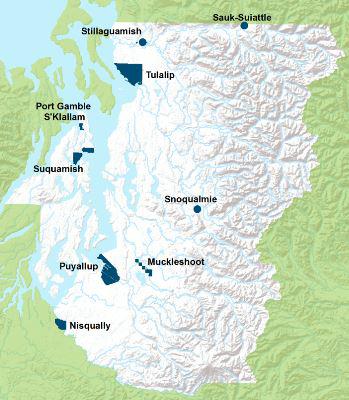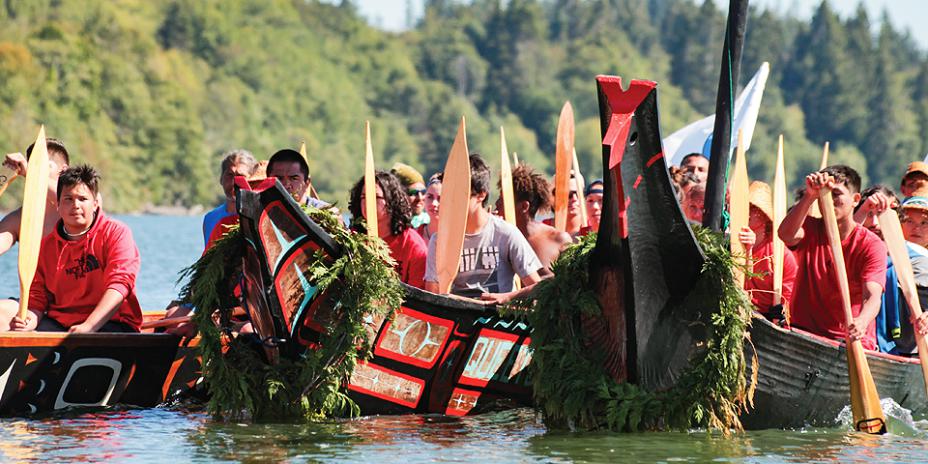The central Puget Sound region is a part of a larger area that has been the traditional aboriginal territory of the Coast Salish peoples.
Puget Sound: Ancestral Lands of the Coast Salish

The Coast Salish Tribes have lived here since time immemorial and while each Tribe is unique, all share in having a deep historical connection and legacy of respect for the land and natural resources. These Tribal nations enrich the region through environmental stewardship, cultural heritage, and economic development, and collaborate with local governments to shape the region’s future.
Tribes are sovereign nations, and each Tribe has its own government with its own governing charter or constitution and set of general laws.
Federally recognized Tribes in the central Puget Sound region
The federal government currently recognizes nine Tribal nations in the region:
* Formal members or associate members of the Puget Sound Regional Council. Tribes are regularly invited and encouraged to be PSRC members.
Tribal Treaty Rights
In the 1850s, many Tribes in the region signed treaties with the United States under duress. These treaties resulted in Tribes ceding most of the region and state in exchange for certain reserved rights, including off-reservation rights to fish in all usual and accustomed fishing grounds and the right to hunt and gather on open and unclaimed lands. The Department of Archaeology and Historic Preservation has an Interactive Map of Tribal Areas of Interest.
Tribal Planning
Tribes engage in land use planning and economic development to provide jobs, housing, and services, as well as the infrastructure to support and plan for growth. As sovereign nations, Tribes are not required to plan under the Growth Management Act but recognize the importance of coordination and cooperation with all governments to deal with challenges such as population growth and climate change facing the region. PSRC recognizes and respects the full sovereignty of each Tribe and their traditional lands located within the jurisdictional boundaries of PSRC members.
VISION 2050
VISION 2050 supports meaningful, regular and ongoing exchange of information and opinions for better informed decision-making and mutual understanding between Indian Tribes as sovereign nations and PSRC member jurisdictions.
VISION 2050 policy, MPP-RC-4, directs the members of the Puget Sound region to coordinate with Tribes in regional and local planning, recognizing the mutual benefits and potential for impacts between growth occurring within and outside Tribal boundaries. In coordination with the Tribes in the region, PSRC has prepared a handout on coordination with Tribes in comprehensive planning [PDF/3MB].
Further, PSRC supports partnerships with Tribes on cultural and natural resource protection, fish and wildlife habitat restoration, economic development, climate change adaptation and mitigation actions, and other issues of Tribal interest.

